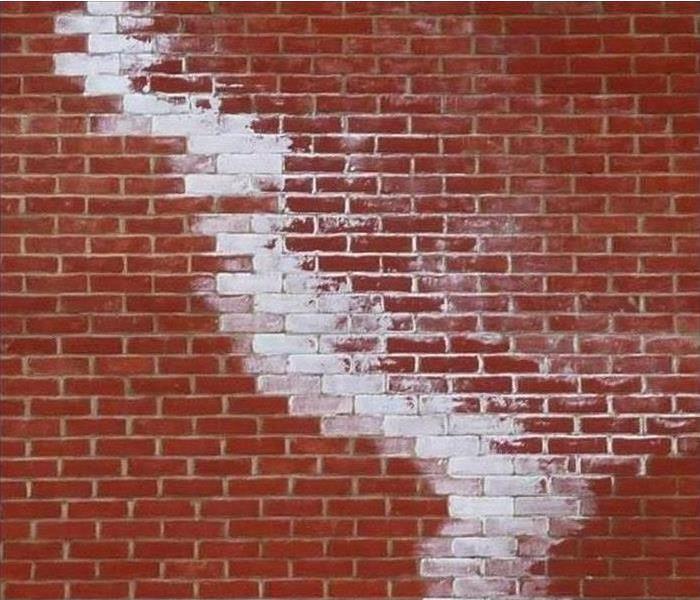Efflorescence
4/7/2022 (Permalink)
What is Efflorescence? The average homeowner and building manager comes across this all the time as it is a pretty common occurrence. Yet, understanding the cause of Efflorescence can be easier said than done. Allow us to unpack this subject a little more.
By definition, efflorescence is the formation of salt on the surface of porous materials (concrete, brick or plaster). Water in and of itself can be the carrier of parts of salt. In addition to this, porous materials often already have traces of salt from within. Now, once water travels through said materials, it often leaves behind traces of these salts or combines with pre-existing levels of salts. The sodium next migrates to the material's surface through the process of water evaporating. What you have left is crystallized salt on the surface – which often gets mistaken for mold!
- Efflorescence can occur in natural as well as developed environments. The effect often looks cosmetic but what it’s communicating is that water intrusion has/is occurring and needs to be addressed. It is important to note that over time this process can weaken structures and also lead to additional damage if not taken care of properly.
- Efflorescence can be removed with the application of various phosphoric acids, followed by a thorough rinsing of water. However, if the source of the water penetration is not taken care of, efflorescence may continue to occur. Contact your local contractor to help seal and strengthen your structure by creating vapor-permeable barriers to your porous materials - often attained through applying hydro-phobic sealers to keep the water out of your porous materials.
Hopefully next time you see some of this ‘puffy white snow’ (as our customers often describe it over the phone) coming out of your home or office - you can help diagnose the problem and prevent further damage.





 24/7 Emergency Service
24/7 Emergency Service